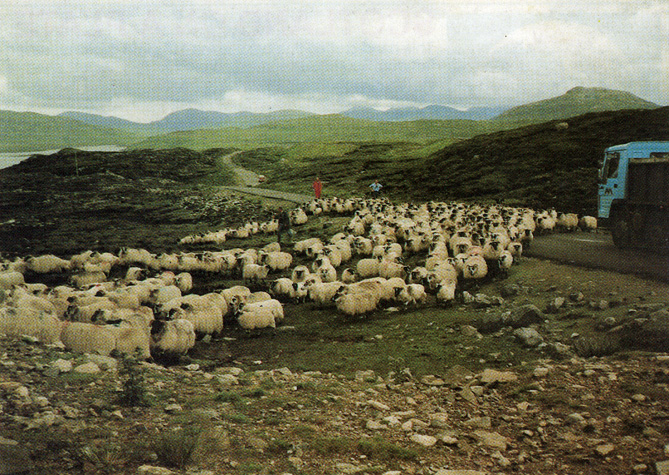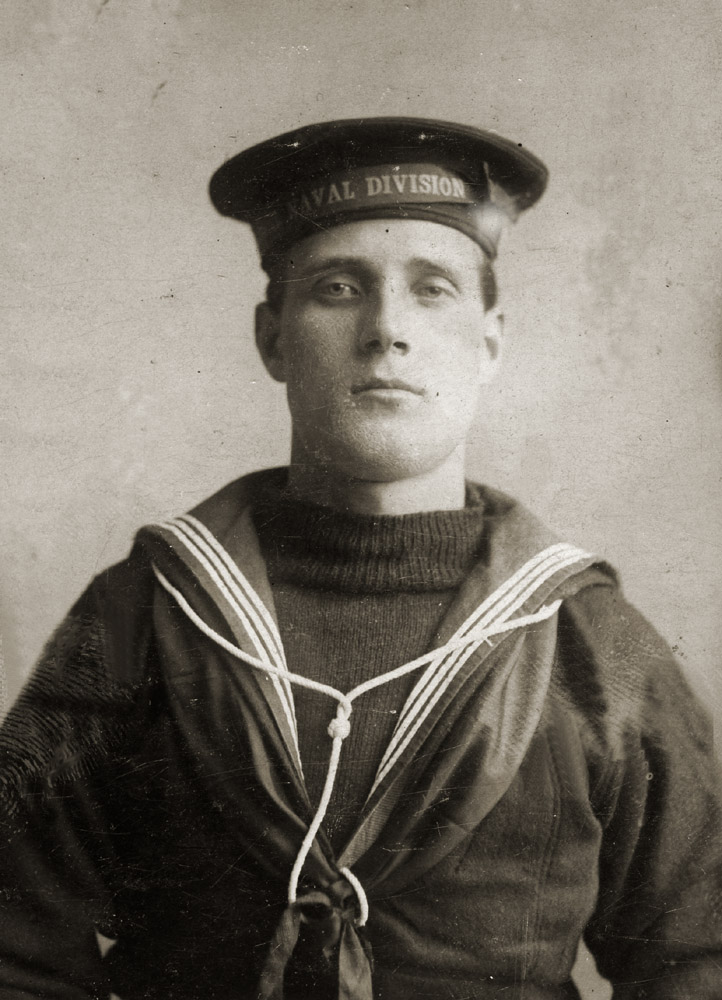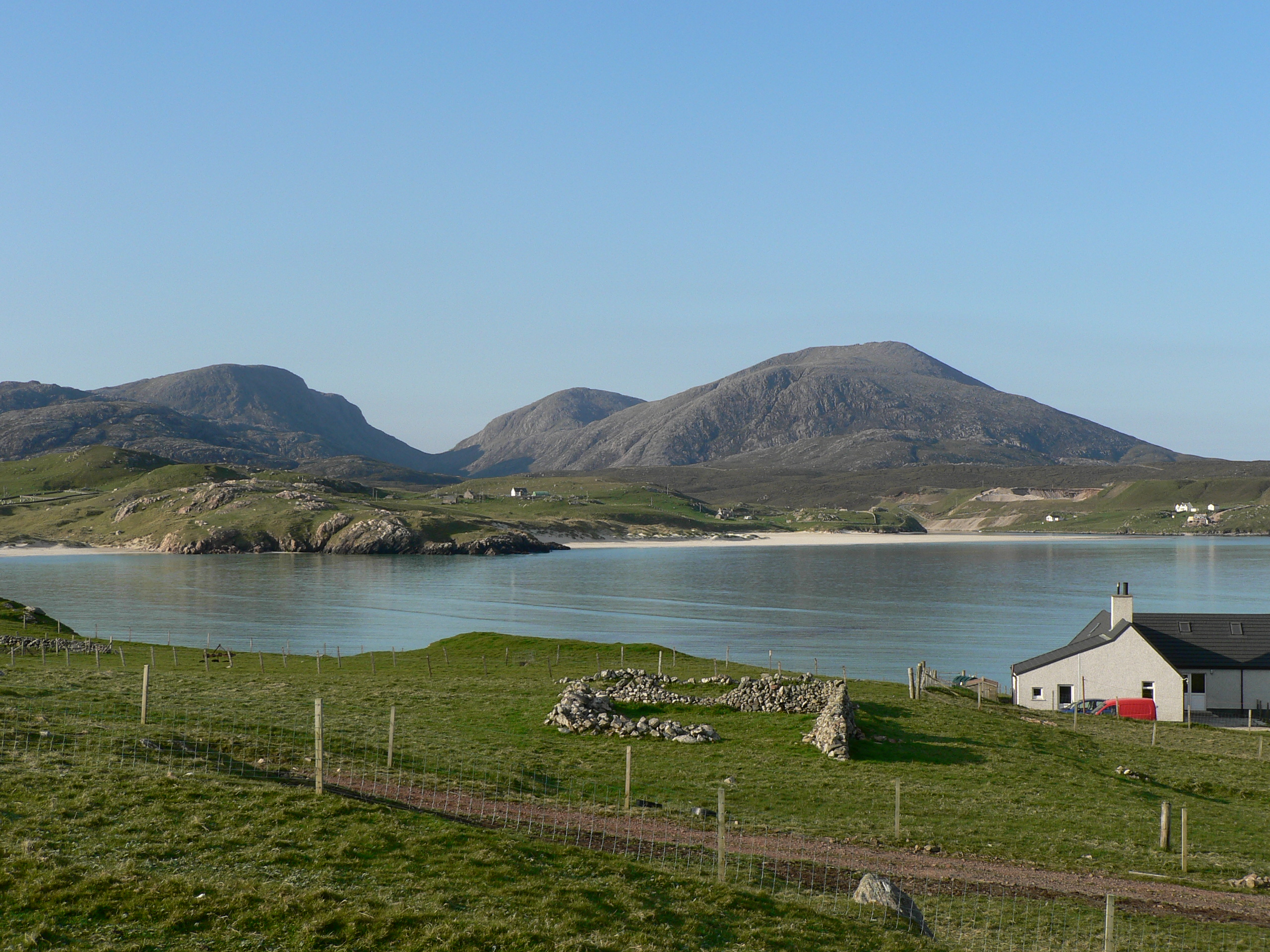Tag: valtos (page 2)
Schools in Uig before the Education Act
The first school in the Western Isles was founded shortly after 1610, when the Seaforth Mackenzies gained possession of the island, and in 1680, a report by ‘Indweller’ says that the Seaforth school had done much good, not only for Lewis but also for the adjacent isles. Other schools followed.
Unidentified Family
The Valtos Smiths and Calum Olach
A Treat for a Cold Friday: Uig, 1964-65
The Gathering

This account of the gathering of the sheep into the Gisla fank for the clipping was written by David Henderson and first published in the Scots Magazine in August 1995. These large-scale community gatherings are now, sadly, a thing of the past. There are more pictures in the gallery, and of the fank at Loch Suainebhat here.
In the diffuse crofting culture of the Western Isles, the summer gathering of the sheep from the moors is one of the main highlights of community life. The practice has remained virtually unchanged since the arrival of the sheep in Lewis, and is a ritual I, as an incomer on holiday from Musselburgh, was priviledged to take part in. The gathering made the highlight of my stay.
My uncle Jim and I woke at dawn. The weather looked poor – drizzle and mist hid the view of Loch Roag from the kitchen window. I was sure the gathering would be put off – wet weather meant damp fleeces, difficult clipping and hours of drying for the Blackface wool we were to harvest.
Donald Calum Morrison, our crofting friend from Valtos, arrived at 7am as planned, refusing tea and looking skyward. “It looks awfully dull,” he said, “but no one’s phoned me so the gathering’s still on.”
Soon I was huddled in the back of Donald Calum’s austere van, sharing floorspace with an excited sheepdog who seemed to know what was in store. We rattled and bounced down the single track road, through Miavaig and on to the road south, pulling into passing places from time to time for a competing car, Donald Calum waving to them with the easy grace of one used to the island etiquette. Then we reached Gisla for the start of the walk into Morsgail Forest, a barren moor between Lewis and Harris where the Valtos crofters’ sheep roam their common grazings.
More than a dozen cars were gathered there. A brief discussion took place in the rain. All the crofters were annoyed that the weather had closed in – during the fortnight before, it had been “just like the Sahara,” as one local put it. There were pensive faces, shaking heads, pursed ips and whistling through teeth. “If it doesn’t dry up soon, the wool will be soaked,” said one man.
Interned at Groningen in 1914
 This unidentified sailor with the Naval Division is believed to be one of those interned in Holland in 1914. The picture was taken at Groningen, and comes to us from 10 Mangersta. Is he one of the Uigeachs listed below who spent the war in “HMS Timbertown”? The following was written by Dave Roberts for Uig News; more information about the 106 known internees from Lewis, and the conditions they experienced, are found at Guido Blokland’s comprehensive website.
This unidentified sailor with the Naval Division is believed to be one of those interned in Holland in 1914. The picture was taken at Groningen, and comes to us from 10 Mangersta. Is he one of the Uigeachs listed below who spent the war in “HMS Timbertown”? The following was written by Dave Roberts for Uig News; more information about the 106 known internees from Lewis, and the conditions they experienced, are found at Guido Blokland’s comprehensive website.
On 5 August 1914 the postman delivered buff-coloured envelopes to all the reservists. War had been declared. There was no reluctance to answer the mobilisation call, and those on the Island made their way immediately to Stornoway, thence to Kyle of Lochalsh, and eventually to one of the Channel ports. The most pressing military need at the time was for infantrymen, not for ships’ crews, so the Naval Reservists found themselves issued with a rifle and ten rounds of ammunition. Their training had been as crew for warships, and the handling of big naval guns, not as infantrymen! But on 5 October they were transported to Antwerp in Belgium, via Dunkirk, to attempt to defend the strategic port from the advance of the Kaiser’s Army. The defences were built in the nineteenth century and were no match for the heavy artillery or the devastating fire from the ‘Big Bertha’ mortars. The ill-equipped and inadequately trained Naval Brigades had no chance and held out for less than three days.
They were facing overwhelming odds, and despite orders that they were to defend this strategic deepwater port at all costs, it was obvious that a retreat was necessary. There were also specific orders that on no account should the Naval Division be caught in Antwerp. Eventually the orders came to fall back, and two of the Brigades did so, but for some hours the third remained ignorant of the withdrawal. 3,500 men reached the Burght, crossed the River Scheldt by pontoon bridge and marched to St Niklaas, where they boarded trains and escaped. The other 1,500 men of the First Brigade, consisting of Hawke, Benbow and Collingwood Battalions, finally got their evacuation orders but when they arrived at the river the bridge was no longer in place. Fortunately there were some small boats available for ferrying them across, but valuable time had been lost. They arrived exhausted at St Niklass early on the morning of 9 October.
All the transport had departed and they were forced to continue on foot to St Gillis-Waas. There they discovered that the railway had been blown up, and they were almost completely surrounded by enemy troops. In fact some of the Naval Brigade had already been captured, including John Maclean Ungeshader (Shonnie Gorabhaig), John Buchanan Brenish, John and Angus Maciver Crowlista, and Donald Mackay Valtos. Only three of the Uigeachs who were sent to Antwerp managed to escape that day: they were Kenneth Maciver Geshader, Donald Macritchie Aird and Angus Mackay Valtos. The rest were now facing capture, being wounded or even being killed by the fierce bombardment they were suffering. Commodore Henderson was in charge and the lives of his men depended on him making the right decision. Reluctantly he chose the safest option: rather than become prisoners of war, they would cross the border. Once they were on Dutch soil, and had surrendered their weapons to the Dutch Army, they became internees in the neutral country of Holland.
The Uig contingent were: Malcolm and Murdo Buchanan (cousins) Brenish; Angus Morrison Islivig; Angus Macdonald Geshader; Donald Morrison, John William Macleod, Angus Macaulay, and James Morrison Valtos; Donald Maclennan Cliff; Kenneth Nicolson Crowlista and Norman Macritchie Aird. Out of the twenty Uigeachs who were sent to Antwerp only Kenneth Maciver Geshader, Donald Macritchie Aird, and Angus Mackay Valtos avoided capture or internment.
Viking Age Triggered by a Shortage of Wives?
Valtos Wee Ones, 1923
Valtos Juniors, 1923
Grievances Told to the Napier Commission
The Rose
A Concert in Valtos, 1913
Valtos School 1904
no images were found
There were 104 pupils at Valtos School in 1904. This key may help with the identification.
1 Mr Cameron
2 Flora Maciver Kneep (Floraidh nighean Mairead Alasdair)
3 Christina Mackay 21 Valtos (Cairstiona Rothaich)
4 Mary Matheson Kneep (Mairi Smiodaidh)
5 Betty Buchanan (Beit Dhomhnaill an t-Saighdear)
6 Barbara Maciver 25 Valtos (Bab Tharmoid Mhurchaidh)
7 Catherine Smith 13 Valtos (Catriona Chaluim a Ghobha)
8 Joan Buchanan 18 Uigen (Seonag Chaluim Mhoir)
9 Dolina Matheson 5 Kneep (Doileag Smiodaidh)
10 Annie Morrison Reithmir (Anna Mhurchaidh Sheumais Reithmir)
Rev David Watson’s Boundary Dispute
David Watson was ordained as minister of Uig in 1845 but as the congregation had mostly migrated to the Free Church, his Church remained largely empty. He was at odds with the people and the estate, as the following notes in the 1851 diary (published by Acair) of the Chamberlain John Munro Mackenzie attest:
Thursday 13 February
Walked to the Manse of Uig and found Mr Watson busy planting potatoes and clearing his arable land of Stones with a number of men employed. Went to the Parish School [at Taigh Chiosamuil] & found it quite crowded there being more than 40 scholars present, and on enquiring the cause was told that Mr Watson gave notice to the people that unless they sent their children to school he would pindfold every sheep & cow of theirs he found on his grass – He expects to get the parents to attend his Church in the same way but I fear he will be disappointed.
Monday 24 March
Went to office and was engaged meeting parties viz… Rev Mr Watson regarding claim for damages for not clearing his farm of Mr Mitchell and small tenants at Whitsunday last, tho’ he agreed and wished to accommodate Mitchelll – Got him to sign a Minute drawn up by Mr [Donald] Munro agreeing to withdrawing his claim & promised to give him the small place of Miavaig which lies into his farm, there are three small tenants here at present occupying it who can be removed to Carishader in place of those going to America.
Thursday 15 May
Went to office and was engaged meeting & paying Ministers Stipends & Schoolmasters salaries — The Rev Mr Watson produced a most extraordinary a/c of £31 made up of various idle claims for damages for mans not being repaired, damages to pasture etc etc which I denied & refused payment in toto and stated to Mr Watson my surprise at his presenting such an a/c – He replied that he would not have done so but that he was hard pressed for cash, having to pay the whole of his stipend for his stock, I offered to give him some delay in the payment of £20 to £30 if he withdrew the a/c which he refused but wished to refer it which I refused as I considered the whole to be absurd –

